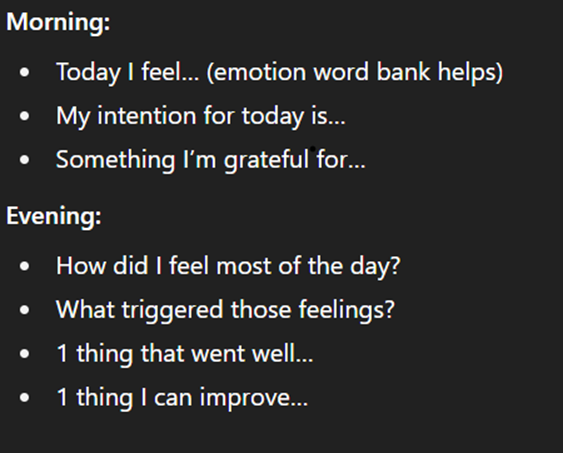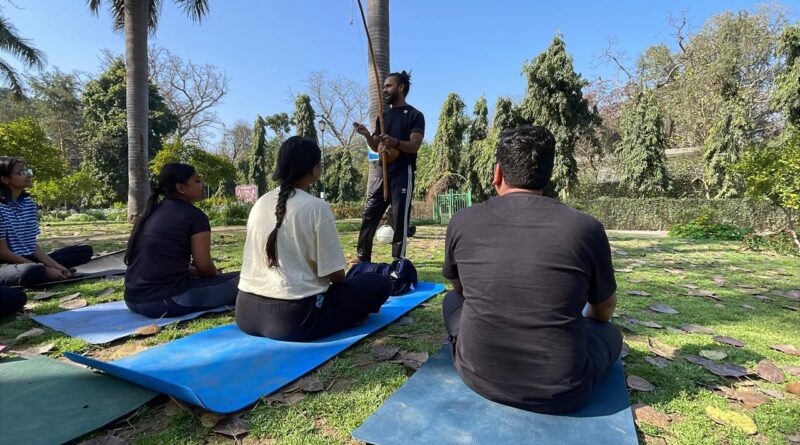Physical health and mental health: Finding balance
A few months into my exam prep, I remember feeling proud that I hadn’t missed a single study session in weeks. I was eating just enough to stay awake, barely sleeping, and thought I was being “disciplined.” But one day, I found myself crying in the middle of a study session, not because the content was overwhelming, but because I was. That’s when it hit me: I had mistaken overworking my body and neglecting my emotions for productivity. We often think health means eating well or exercising but forget that our minds need tending too. Balancing physical and mental health isn’t a luxury or self-care fluff — it’s SURVIVAL.
Let’s talk about mental health first, because it often gets less attention and priority, especially in student’s lives. We’re all stressing, How do I study more effectively? How do I achieve this or that? What’s going to happen next? The unpredictability of exams and results, and the high competition everywhere, raise our cortisol levels. This unchecked rise in stress hormones can lead to anxiety, burnout, and depression. Sometimes, our personal lives also go through struggles and managing studies or work alongside often requires emotional regulation. That’s something many of us were never taught. Add in the self-doubt that thrives in a competitive environment, especially in a country like India, where socio-economic conditions are often at stake and here is a perfect recipe for mental exhaustion.
Unchecked this spiral, pushes us into overthinking, negative self-talk, and serious mental health issues. Because awareness is so low we often ignore it completely, not even acknowledging it as a problem. And the consequences aren’t just in your head, mental health issues directly impact the body. As Bessel van der Kolk explains in his book, ‘The Body Keeps the Score’, mental wounds can show up as physical problems like chronic pain, fatigue and immune issues. The body literally stores the stress.
Now, moving to physical side of the story. Physical health is a mix of good nutrition, proper sleep, and regular movement and of course, a disease-free body.
Nutrition-wise, it’s important to note that just having three meals a day or “enough” calories isn’t enough by itself. A lack of a balanced diet can lead to serious health problems and developmental issues.
Then there’s our prolonged sitting problem. Whether for work or study, research highlights that such a sedentary lifestyle worsens our cardiometabolic health and raises long-term risks.
And let’s talk about the sleep crisis. Erratic sleep schedules and reduced sleep quality are often linked to increase the risks of obesity, diabetes, high blood pressure, cardiovascular disease, weakened immune function and even stroke.
Furthermore, studies have consistently found that poor physical health can exacerbate psychiatric symptoms and reduce overall mental well-being. Ignoring one harms the other. See how the two are tied together?
Let’s understand, what happens if we focus on one side?
If you have a strict gym routine but sleep poorly and burn out, you may notice irritability, anxiety, loss of interest, and brain fog. And eventually, this may lead to long-term exhaustion, an unhealthy obsession with appearance, and emotional detachment.
On the flip side, if you’re engaged in therapy and journaling but have zero physical activity and a poor diet, you can end up with low energy, fatigue, body-image issues, and even mental-health relapses.
So, what can we actually do?
Let’s start with mental health:
- Journal your emotions, Use any note-taking app or good old pen and paper to track moods and celebrate small wins.
- Do at least one enjoyable thing a week (Just for you).
- Talk to your family and friends – The guilt-free breaks
- Meditate, helps lower anxiety, reduce cortisol levels and improve sleep
Here is a small reflection sheet one can use

For physical health:
- Balanced diet, include the right proportions of proteins, carbs, fats, and fiber. Vitamin B and D deficiencies can contribute to depression, and omega-3 helps with cognitive health by reducing brain inflammation.
- Movement part, If you’re immersed in studies or work, start small. Set a step goal and even one can use walks to listen to lectures, podcasts or just relax.
- For more, try 30 minutes of daily exercise. According to the UK Mental Health Foundation, regular exercise can reduce anxiety and depression by 20–30%.
To start off, you don’t have to move mountains, start small. Even a 20-minute walk + 10-minute journaling is a stronger health plan than 0-0.
In the end health isn’t about extremes, it’s about harmony. Your mind fuels your body and your body sustains your mind. Neglect either and the other will eventually crumble. Start small, stay consistent, and remember — taking care of yourself isn’t stealing time from your goals it’s the very thing that makes achieving them possible.

